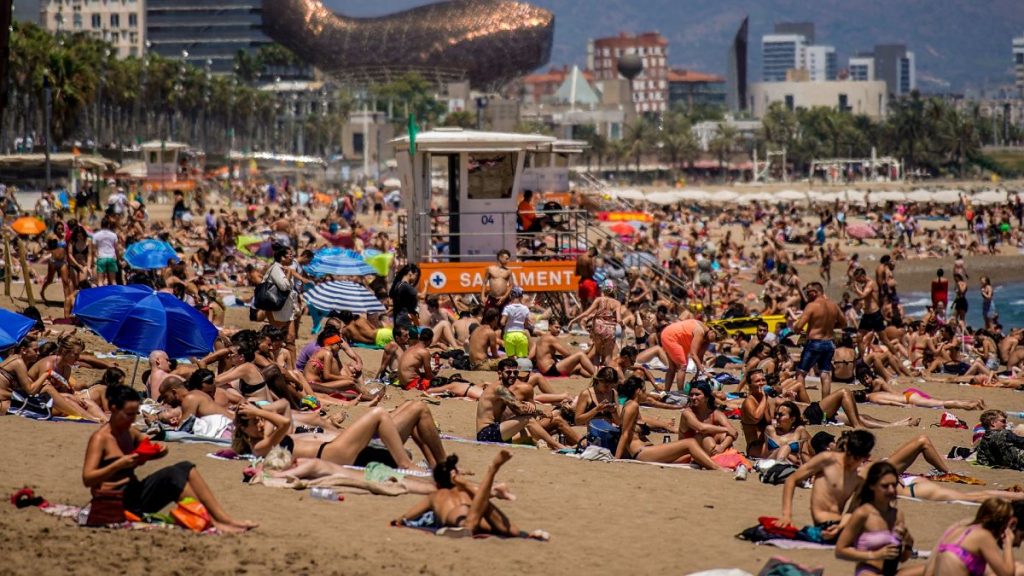Barcelona is experiencing its first significant rainfall in almost four years, marking the end of the region’s longest drought on record. This comes as a relief to residents and officials, especially as the tourist season begins in the city. Despite concerns about the impact of mass tourism on water resources, events like the Primavera Sound music festival draw hundreds of thousands of visitors to Barcelona each year, generating significant revenue for the city. The relationship between tourism and water management is being scrutinized, with questions arising about the sustainability of the industry during future droughts.
Tourism is a vital economic sector for Barcelona, accounting for a significant portion of the city’s GDP. Despite facing water restrictions due to the drought, the tourism sector was largely exempt from these limitations, with few restrictions placed on hotels, hostels, and other accommodations. As the city welcomed millions of tourists in 2023, generating billions in revenue, the importance of balancing the needs of the tourism industry with water conservation efforts became increasingly evident. Initiatives were introduced to promote water conservation in hotels and other tourist establishments, highlighting the importance of raising awareness about water scarcity in the sector.
The drought in Barcelona has had a lasting impact on residents, as well as on the political landscape of the region. Candidates in regional elections have addressed the issue of water security, recognizing the need for improved water management strategies in the face of future droughts. Initiatives are being developed to educate tourists about water scarcity and promote water-efficient practices in the tourism sector. Stakeholders are coming together to implement systems for measuring water usage in tourist activities, with a focus on promoting sustainability and reducing water consumption in the industry.
Barcelona is taking steps to adapt to the challenges posed by drought, including substantial investments in water management infrastructure. The Catalan government plans to invest billions in the Catalan Water Agency to improve water supplies and address future droughts. This includes the installation of a floating desalination plant off Barcelona’s coast, as well as the deployment of mobile desalination units along the northern Costa Brava. These initiatives aim to increase water production and supply in the region, ensuring that Barcelona is better equipped to handle drought conditions and mitigate the impact on water resources.
The recent rainfall in Barcelona has allowed the city to avoid significant changes to its tourism sector for now, providing a temporary reprieve and more time to prepare for future droughts. As the region faces increasing challenges from climate change, such as heatwaves and reduced rainfall, sustainable water management practices will be crucial for the long-term viability of the tourism industry. Barcelona is working towards a more sustainable approach to tourism, emphasizing the importance of water conservation and addressing the environmental impact of mass tourism on the region. By implementing water-efficient practices and investing in water infrastructure, Barcelona aims to strike a balance between tourism and water conservation in the face of ongoing environmental challenges.









